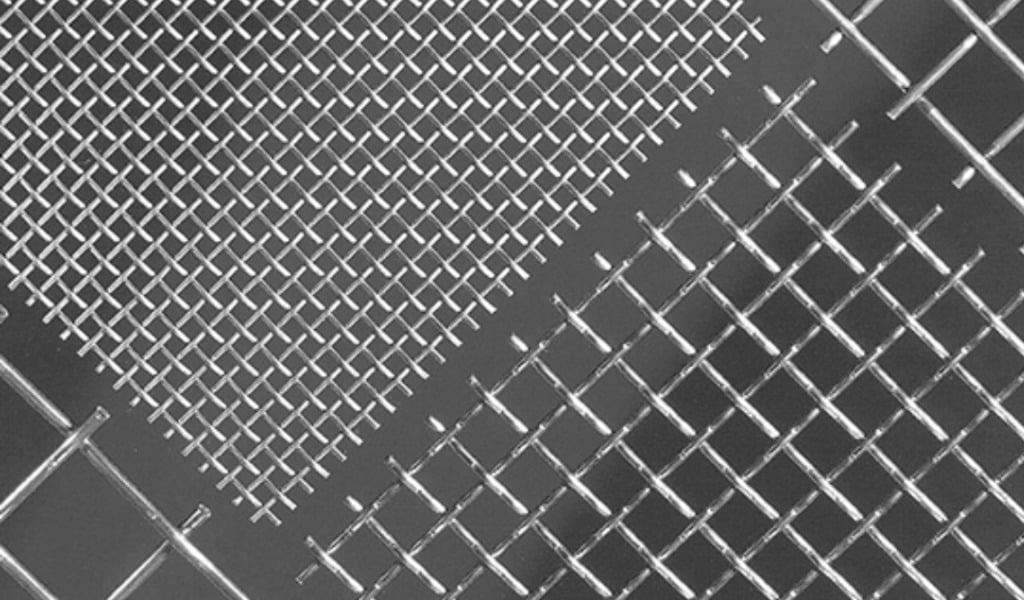Buyer’s Guide: Choosing the Right Wire Mesh for Chromatography Columns
In chromatography, precision isn’t just a goal to meet as much as it’s a requirement. Achieving consistent, high-resolution separations starts with every component working in sync, and few are as foundational as the wire mesh inside your column.
And yet, for all its importance, wire mesh selections are often rushed or based on assumptions that can lead to costly inefficiencies, compromised results, or unexpected downtime.
At W.S. Tyler, our mission is to make the world cleaner and safer through precision-engineered wire mesh solutions backed by over 150 years of expertise. We believe in empowering chromatography professionals with the insight they need to design better systems from the ground up, which starts with smarter mesh selection.
In this article, we’ll walk through the essential questions you should ask before buying wire mesh, explain why the supplier relationship matters, highlight common pitfalls in the specification process, and show you how to identify a partner that aligns with your technical and operational goals.
What to Ask Before Buying Wire Mesh for Chromatography Columns
Woven wire mesh isn’t just a supporting material; it directly influences your ability to achieve precise, repeatable results. When it comes to chromatography column design, many of the most common performance issues can be traced back to questions that weren’t asked at the point of purchase.
Before choosing a mesh, it’s critical to evaluate what your column is truly being asked to do. What are your target separation goals? What pressure and temperature ranges will the mesh be exposed to? Is chemical compatibility a concern?
These questions help clarify not only what mesh you can use, but also what mesh you should use for optimal performance.
It’s also important to consider how your system handles flow. Mesh selection plays a key role in managing pressure drop, maintaining uniform velocity across the column bed, and securing the stationary phase.
Failing to account for these variables can result in channeling, inconsistent retention times, or even media displacement under stress.
Simply put, the more specific you are in defining your requirements early on, the more value your wire mesh can deliver. Whether you’re designing for analytical precision or large-scale throughput, taking a question-first approach ensures the final product doesn’t just fit, it performs at a consistent and high-quality level.
Why Your Mesh Supplier Matters in Chromatography Performance
Not all wire mesh is created equal, and not all mesh suppliers are equipped to meet the demanding needs of chromatography. When separation accuracy, flow consistency, and system longevity are on the line, who you source from becomes just as important as what you specify.
A reliable supplier does more than fill an order. They understand the nuances of chromatography and how filtration impacts resolution, backpressure, and reproducibility. This insight allows them to recommend mesh specifications tailored to your process, not just standard off-the-shelf products that may fall short under pressure.
Beyond technical knowledge, quality assurance is critical.
Mesh that’s poorly manufactured or inconsistently woven can introduce variability into your system, no matter how carefully the rest of your setup is controlled. Look for a supplier that prioritizes dimensional precision, pore uniformity, and material traceability as part of their core offering.
Want to learn more about the importance of quality control? Read the article below:
Equally important is support.
A supplier that offers collaborative design reviews, documentation, and performance guidance can help you troubleshoot challenges before they become costly issues. When they act as a partner, and not just as a vendor, you gain access to expertise that can elevate your entire chromatography workflow.
Ultimately, choosing a mesh supplier isn’t just a purchasing decision. It’s a performance decision.
The right partner helps ensure every column you build is as consistent, capable, and cost-effective as possible.
Specification Questions That Prevent Performance Failures
When specifying wire mesh for chromatography columns, details matter. A minor oversight, whether that be in pore size, material choice, or mesh count, can introduce inconsistencies that compromise your entire separation process.
To avoid performance failures, it’s essential to approach specifications with purpose and precision.
Start by asking: What flow characteristics does my process require? The answer helps determine not just pore size, but also open area and weave type. For example, tighter weaves may offer better retention and stability, but could increase backpressure if not balanced correctly.
Next, consider chemical compatibility.
What solvents, Ph levels, and temperatures will the mesh be exposed to? Stainless steel is a popular choice for its corrosion resistance, but not all grades perform equally in aggressive environments.
Matching the right alloy to your application helps prevent material degradation and contamination over time.
You should also ask: What mechanical stresses will the mesh face?
High pressures, repeated cleaning cycles, and rapid flow changes can cause distortion in mesh that lacks the proper strength or weave integrity. Confirming tolerances and mechanical specs with your supplier ensures the mesh will hold up under real-world conditions.
Finally, don’t overlook dimensional fit. Custom-cut mesh with precise tolerances, bypass, and shifting within the column are two common causes of inconsistent separation and premature column failure.
Asking the right questions upfront doesn’t just protect your process, it puts you in control of it. The more clarity you bring to the specification stage, the more reliable and repeatable your chromatography outcomes will be.
Red Flags to Watch for When Sourcing Mesh for Chromatography
Wire mesh is not all created with chromatography in mind, and overlooking key supplier red flags can lead you to major performance setbacks. Whether you’re evaluating a new vendor or rethinking your current supply chain, it’s important to recognize warning signs that could point to quality or consistency issues.
One of the first red flags is vague or generic specifications. If a supplier can’t provide detailed mesh data, such as exact pore size, open area, wire diameter, and weave type, it’s difficult to know if the product will align with your column’s needs.
Precision is a non-negotiable in chromatography, and ambiguity often leads to mismatches that compromise flow control and separation quality.
Another concern is limited traceability or quality documentation. Suppliers who can’t provide material certifications, lot traceability, or testing data may not follow rigorous quality control standards.
In chromatography, where consistency and cleanliness directly impact results, a lack of documentation raises serious reliability concerns.
You should also be cautious if a supplier focuses solely on stock mesh.
Off-the-shelf products may be fast and convenient, but chromatography columns often require custom configurations. If your vendor doesn’t support customization or lacks experience with high-precision applications, they may not be equipped to meet your exact performance requirements.
Lastly, inconsistent communication or support is a red flag in any technical partnership. If your supplier can’t answer questions clearly, provide engineering support, or help resolve issues quickly, it’s unlikely they’ll contribute to long-term success.
Identifying these red flags early helps you avoid the costly trial-and-error and ensures you’re working with a partner who understands the importance of precision, consistency, and reliability in chromatography.
Choosing a Mesh Supplier That Understands Your Process
Success doesn’t just come from buying the right materials; it comes from working with partners who understand the science behind your separation goals. A supplier that recognizes the unique challenges of chromatography column design can offer far more than just any mesh.
They can offer peace of mind.
The right mesh supplier takes the time to learn about your specific process, from the compounds you’re separating to the pressures, flow rates, and solvents involved. They understand how each of these factors influences the mesh’s role within the column and use that knowledge to help you specify a mesh that aligns with your goals for resolution, repeatability, and efficiency.
Equally important is a supplier’s ability to deliver precision at scale.
In chromatography, even small deviations in pore size or mesh geometry can lead to inconsistent results. A trusted supplier has the quality systems and engineering expertise in place to ensure the mesh you receive is not only built to spec but also performs exactly as expected, every time.
But perhaps most valuable is a supplier’s commitment to collaboration. When mesh isn’t treated as an afterthought, but as an integral part of your column’s success, it opens the door to smarter designs, faster development cycles, and more confident experimentation.
Build Better Chromatography Systems with the Right Mesh Partner
The performance of your chromatography column doesn’t begin with your solvent, your resin, or even your instrumentation. It begins with the foundation that holds everything in one place: the wire mesh.
Choosing the right wire mesh isn’t just a technical decision; it’s a strategic one. It affects how well your system separates compounds, how long your equipment lasts, and how confidently you can reproduce your results. That’s why working with a reliable supplier who not only provides woven wire mesh but also understands your application can make all the difference.
At W.S. Tyler, our mission is to help build cleaner, safer, and more efficient systems through precision-engineered wire mesh solutions. With over 150 years of experience, we work alongside you to ensure every layer of your chromatography column is built for performance.
Want to understand what makes high-performance wire mesh truly reliable? Read more below:
About Dylan Polz
Dylan is a Content Writer with 2 years of experience in marketing and SEO. Passionate about learning and strengthening his writing skills, he is currently expanding his expertise in particle analysis and woven wire mesh technologies. With a strong belief in the power of information to drive positive change, his goal is to develop content that supports cleaner, safer solutions across all industries.




